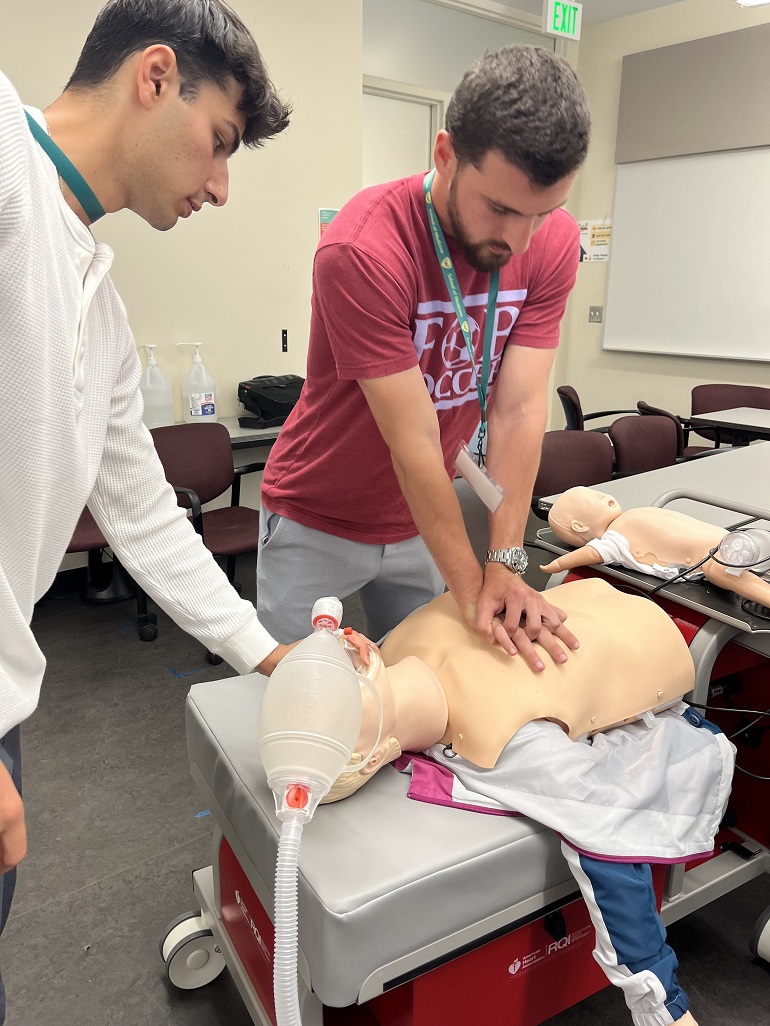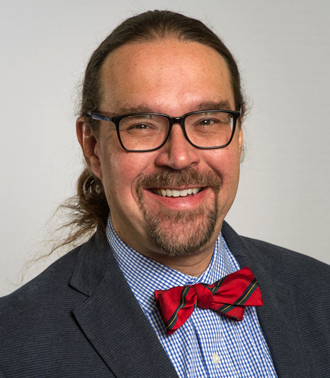Detroit announced in late summer that it is the largest municipality to earn the HEARTSafe Community designation from Citizen CPR Foundation, an achievement in which Wayne State University and the Wayne Mobile Health Unit played an exceptionally pivotal role.
WSU Professor of Emergency Medicine Robert Dunne, M.D., is medical director of the Detroit Fire Department, which has been working to pursue the HEARTSafe Community designation to highlight its ongoing commitment to the cardiac health of Detroiters and to improve survival rates of patients who suffer cardiac arrest citywide. Dr. Dunne also directs the Emergency Medical Services Fellowship.

“Our Emergency Medical Services section of the Department of Emergency Medicine was the WSU lead, but this was a massive team effort,” Dr. Dunne said. “It was all hands-on deck.”
The achievement means Detroit is an official part of the HEARTSafe Community initiative, a national preparedness program dedicated to improving outcomes of sudden cardiac arrest.
“We always have opportunity to do more with the community, and that’s kind of what kicked us into the HEARTSafe project in 2018,” Dr. Dunne said.
The WSU Department of Emergency Medicine has housed all cardiac arrest data for the city as part of its Detroit cardiac arrest registry, started in 2005.

“Emergency Medicine has worked on cardiac arrest research and education as long we have been a department,” Dr. Dunne said.
Citizen CPR Foundation administers the program in the United States.
“Our team has been working behind the scenes for nearly twenty years, gathering data on cardiac arrest, building relationships and working to improve outcomes,” said Mayor Mike Duggan in a release. “Thanks to the Citizen CPR Foundation for highlighting this critical effort and giving us actionable goals to continue to work toward.”
To become HEARTSafe, a community must fulfill 13 criteria. Some of the requirements include training 15 percent of the community population every year, developing and implementing strategies to improve public awareness and bystander intervention, permanently placing automated external defibrillators that can be quickly and reliably accessed, and recognizing rescuers for their lifesaving efforts, among other critical requisites. For the comprehensive list of criteria, click here.
WSU School of Medicine student organization First Aid First is one of several organizations that were part of the overall Wayne State team.
“Detroit being designated as HEARTSafe is a huge step in the right direction for the community. Not only increasing awareness for medical emergencies, but empowering community members to take action in a safe and effective way is important for decreasing mortality and fostering a sense of safety in our beloved community,” said third-year medical student and First Aid First past Co-President Katie Clark.
The organization provides free, lifesaving training to community members to empower individuals to respond quickly and confidently during real-life medical emergencies, including teaching hands-only CPR and tips to recognize signs and symptoms of a heart attack, as well as stop-the-bleed techniques to stop hemorrhage.
“We feel that increasing the conversation around these situations will help community members to be prepared should they ever encounter such an event. Beyond this, First Aid First hosts the annual ‘Stop a bleed, Start a heart’ CPR challenge, where we challenged other medical schools to see who could train the most community members in CPR and Stop-the-Bleed techniques. The inaugural year of this challenge concluded on World Heart Day and trained more than 600 community members across Detroit. We feel that these efforts helped with the Heart Safe designation,” Clark added.
Additional Wayne State units that contributed to the designation include Wayne Health Mobile Unit and Americorps, based at the Center for Urban Studies, which trains WSU students in CPR and other basic life support skills regularly.
The work toward achieving and retaining the HEARTSafe Community designation is led by Dr. Dunne, along with fire Capt. Jeffrey Forbes, with support from Executive Fire Commissioner Chuck Simms and Mayor Duggan.
“I am proud of the dedication of the men and women of the Detroit Fire Department for their hard work toward becoming the largest municipality to be designated a HEARTSafe Community,” Simms said. “Our residents deserve the best we can provide in terms of education and prevention, but we can’t do it alone. We need the support of the whole community as we work to improve cardiac arrest care for the citizens of Detroit.”
Since the City of Detroit joined the PulsePoint app in 2023 under the leadership of the Detroit Fire Department, there are now more than 500 AEDs registered, including those registered to the app by Wayne State students, making it easy for residents who have downloaded the app to find an AED in the case of a cardiac arrest.
Through partnerships like those with Wayne State, more than 100,000 people have been trained in CPR in the past year in the city, at city recreation centers, community events and through training programs offered across the city.
The full list of community partners can be found at https://detroitmi.gov/departments/detroit-fire-department.